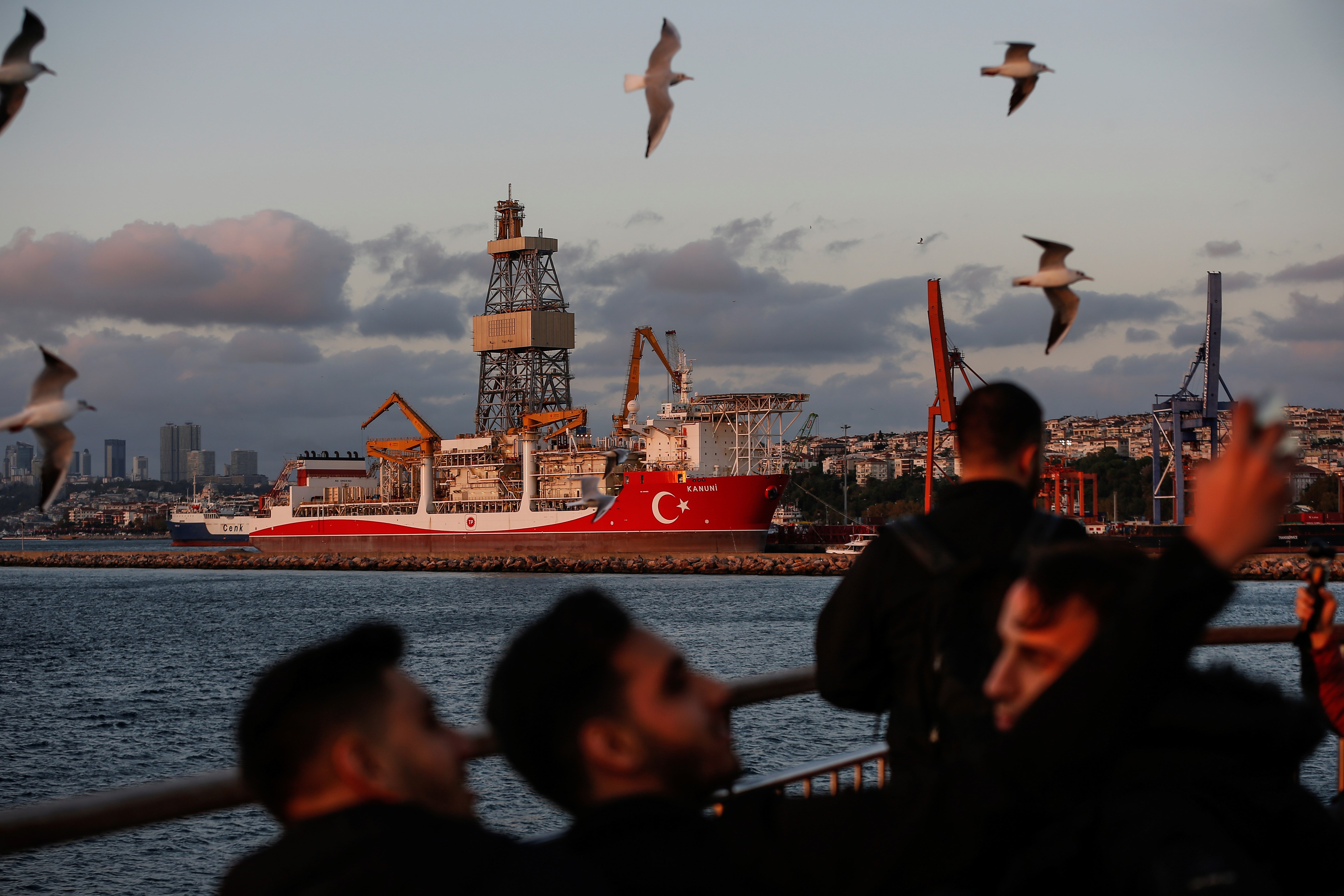Turkey planning to reduce foreign dependency from 71% to 13% by 2053
The Turkish president has announced Ankara's plans to reduce foreign gas dependency in the coming years.
-

Turkish drilling ship Kanuni is seen docked for maintenance before heading to the Black Sea for drilling operations, at the port of Haydarpasa in Istanbul, Wednesday, Oct. 21, 2020 (AP Photo/Emrah Gurel)
The Turkish president on Friday announced that his country is planning to reduce dependency on foreign energy from 71% to 13% by 2053, and will be setting a benchmark gas price as early as possible.
Recep Tayyip Erdogan "outlined our stance concerning energy to reduce our external dependence on primary resources from 71%-13% by 2053," Erdogan said during a ceremony upon the completion of the Silicri gas storage project.
Turkey, according to the president, was aiming to become a global energy center where "a benchmark price for gas would be set as soon as possible."
Earlier this month, Erdogan stated that Ankara is carrying out preparations to establish the gas hub project suggested earlier by Moscow.
"As you know, [Russian President Vladimir] Putin put forward a gas hub project in Turkey to redistribute gas to Europe. We are now making preparations for this," Erdogan said, noting that projects related to natural gas are not bound to wells in the Black and Mediterranean seas.
On October 12, Russian President Vladimir Putin said Moscow could redirect gas transit from the Nord Stream pipelines, damaged by an explosion classified by Russia as an act of terrorism, to Turkey. Unprecedented damage was dealt to three out of four Nord Stream pipelines in the Baltic Sea.
Turkish Minister of Energy and Natural Resources Fatih Donmez stated then that Turkey and Russia have come to an agreement over creating a gas hub that will link the two through Europe, and Ankara has already started on its part of the work.
On October 14, Erdogan said the two leaders instructed relevant institutions of the two countries to quickly begin work on the idea of creating a hub in Turkey for gas supplies to Europe.
The pipeline of the hub starts on the Russian coast, runs over 930 km through the Black Sea, and comes ashore in the Thrace region of Turkey.
It directly connects the largest gas reserves in Russia to the Turkish gas transportation network, providing reliable energy to Turkey, and South and Southeast Europe.
In a report by the Finland-based Centre for Research on Energy and Clean Air (CREA) earlier in November, Turkey has emerged as a new route for Russian oil supplies to the EU, after Moscow's income from fossil fuel exports plummeted to their lowest levels since the beginning of the war in Ukraine.
Read more: Putin, Erdogan discuss grain corridor, gas hub, & Ukraine peace talks

 3 Min Read
3 Min Read








